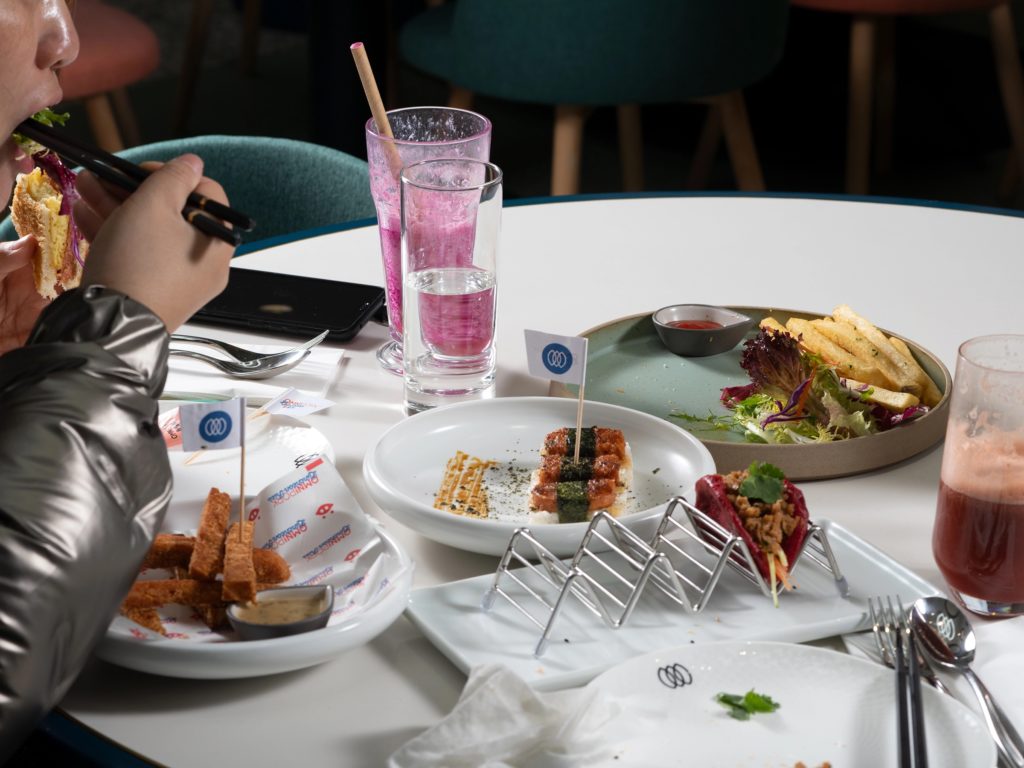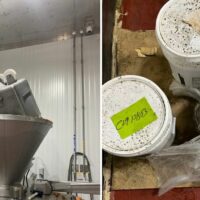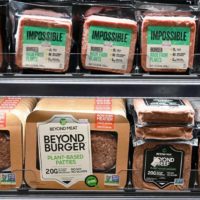
Image source: TIME
Every week we track the business, tech and investment trends in CPG, retail, restaurants, agriculture, cooking and health, so you don’t have to. Here are some of this week’s top headlines.
A study has found that farms that used regenerative agriculture practices such as no-till farming, cover crops and diverse crop rotations produced crops with higher levels of certain vitamins, minerals and phytochemicals than farms using conventional practices.
In other news, President Xi Jinping has referenced alternative proteins in a speech during which he underlined his support for domestic food innovation – a potential boon for China’s alternative protein sector.
Our newsletter takes a lot of time and resources to produce. Make a one time or monthly contribution to help us keep it going. Whether it’s $5 or $500, every bit helps and shows us that you value our work.
Check out our weekly round-up of last week’s top food startup, tech and innovation news below or peruse the full newsletter here.
1. Study Shows Nutritional Benefits in Regenerative Agriculture Crops – World-Grain
Farms that used regenerative agriculture practices such as no-till farming, cover crops and diverse crop rotations produced crops with higher levels of certain vitamins, minerals and phytochemicals than farms using conventional practices.
2. President Xi References China’s Alt-Protein Sector In National Food Security Speech – Green Queen
Speaking at a meeting with agricultural, social welfare and social security sector figureheads, he made statements that positively impact the country’s burgeoning alternative protein industry.
3. Food Companies, Long Symbols of the West in Russia, Pause Operations – New York Times
After years of cultivating the Russian market, McDonald’s, Starbucks, PepsiCo and Coca-Cola said they would temporarily close locations or stop selling products there.
4. Gene-Edited Beef Cattle Receive Regulatory Clearance in the US – Los Angeles Times
The FDA cleared the way for sale of beef from gene-edited cattle, bred to withstand warmer temperatures, in the coming years. Cattle that aren’t stressed by heat might pack on weight more easily, making for more efficient meat production.
5. Impossible Foods Sues Startup Motif FoodWorks for Patent Infringement – CNBC
Impossible Foods is suing Motif FoodWorks for patent infringement, claiming that the startup’s beef alternative that uses heme technology that too closely imitates its own version.
6. Indian Food Delivery Giant Swiggy Eyes $1B IPO – TechCrunch
Swiggy said in January that it had nearly doubled its food delivery business’ gross order value, and Instamart, its instant delivery service, was on track to reach an annual GMV run rate of $1b in the next three quarters.
7. Swiftly Quickly Gets Brick-and-Mortar Stores Set Up to Cater to Online Customers – TechCrunch
The company has raised $100m to expand into new verticals outside of grocery retail, such as beauty, home improvements and sporting goods.
8. AiFi Adds New Funding into Its Cart to Expand Autonomous Retail Footprint – TechCrunch
The startup has raised $65m to launch stores faster and more efficiently – a process that the company can execute within a week.
9. Once Upon a Farm Closes $52M in New Funding – Food Business News
The funding comes on the heels of its acquisition of Raised Reel, a DTC consumer baby food business. It plans to expand its innovation platform and fuel ongoing growth.
10. Finless Foods Bringing Plant-Based Tuna To the Masses, Ramping Up Cell-Cultured Plans with $34M in Series B Funding – Forbes
Next up is finalizing construction of a 11k-sq-ft pilot facility for Finless to scale up production of cell-cultured bluefin tuna for US regulatory approval and sales to consumers.
11. Groundbreaking UN Resolution Connects Animal Welfare and Environmental Sustainability for the First Time – Green Queen
The move is seen as historic and, potentially, a catalyst for widespread governmental action to protect animals and the environment.
12. Relocating Farmland Would Reverse 2 Decades-Worth of CO2 – Green Queen
New research suggests relocating farmland could increase carbon sequestration and biodiversity while reducing freshwater use and minimizing environmental impact.
Our newsletter is the absolute easiest way to stay on top of the emerging sector, so sign up for it today and never miss the latest food tech and innovation news and trends, Already signed up? Share the love with your friends and colleagues!





